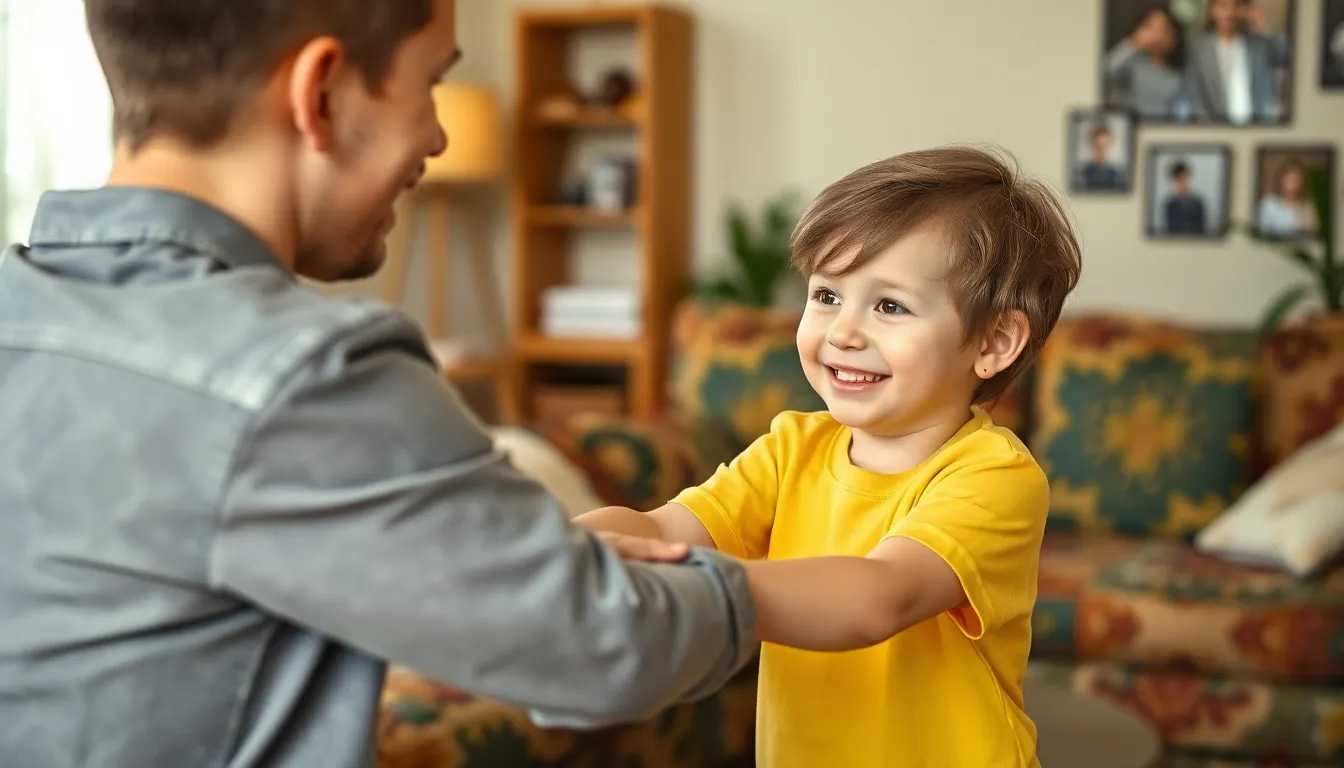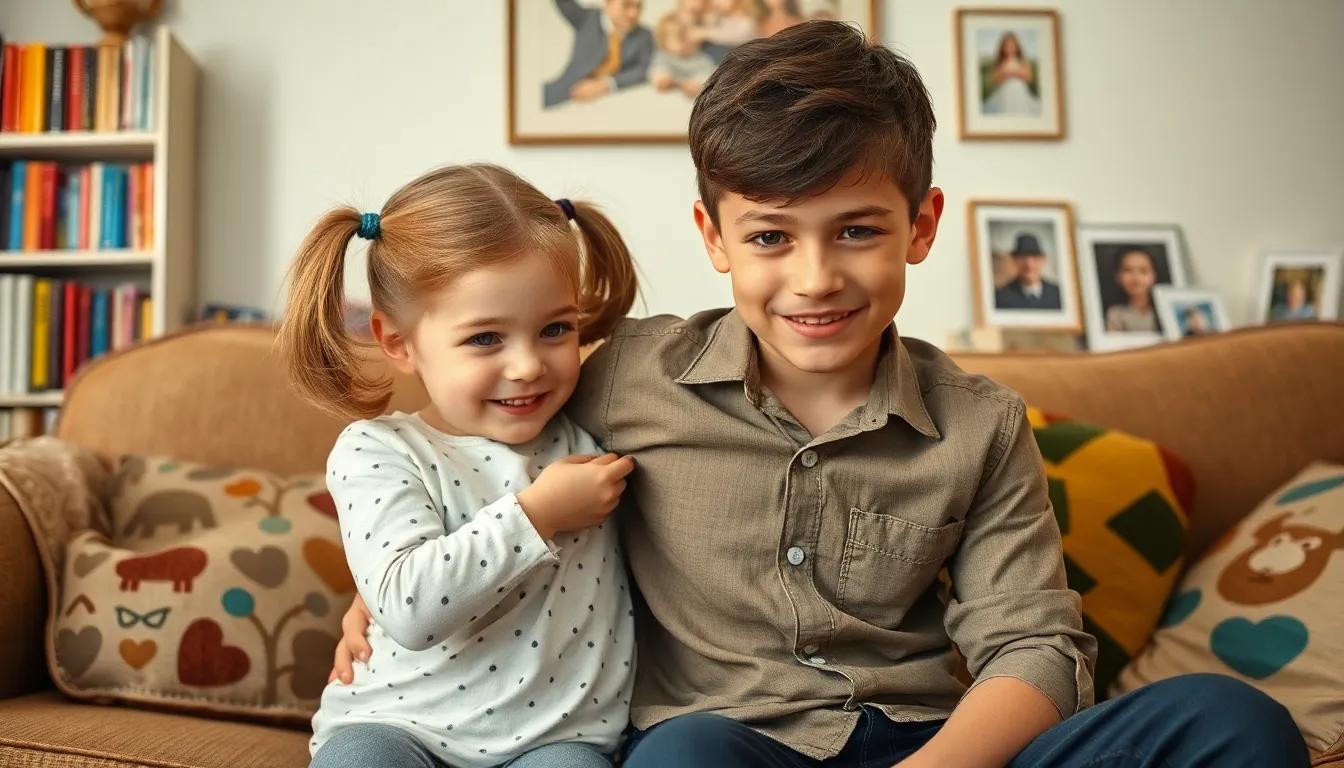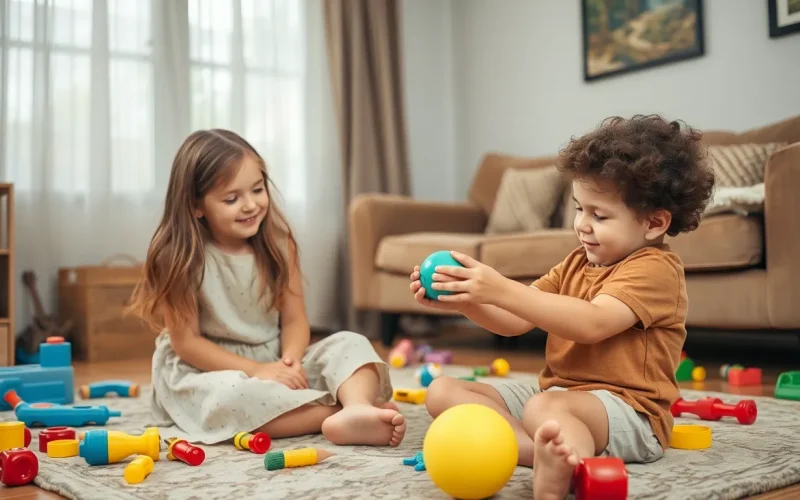Table of Contents
ToggleGrowing up with a younger sibling can feel like living in a never-ending sitcom. From their relentless need for attention to their uncanny ability to push every button, younger siblings have a talent for turning everyday life into a comedic chaos. They might steal your snacks, invade your personal space, and somehow manage to be both your biggest fan and your most annoying critic all at once.
But let’s face it: while they might drive you up the wall, these pint-sized tormentors also bring a unique charm to family life. In this article, we’ll explore the delightful yet maddening antics of younger siblings, proving that even the most annoying habits can spark laughter and unforgettable memories. So buckle up for a humorous journey through sibling rivalry that’ll have you nodding in agreement and chuckling at the shared experiences of growing up with a little brother or sister.
Overview of Younger Sibling Dynamics
Growing up with a younger sibling involves a blend of chaos and camaraderie. These relationships often shape family experiences in memorable ways.
The Role of the Younger Sibling
Younger siblings often become the source of entertainment and unpredictability. They frequently seek attention and validation from older siblings. This quest can lead to various antics, from playful teasing to innocent mischief. Roles within the family can shift, causing older siblings to adopt a guardian-like demeanor while younger siblings embrace a carefree spirit. Such dynamics foster a unique bond that intertwines support and rivalry. These experiences enrich family life, imbuing it with laughter and shared memories.
Common Misconceptions
Many believe younger siblings solely disrupt family harmony. This notion oversimplifies their roles, failing to recognize their contributions. Often, they serve as catalysts for conflict resolution and humor, even when perceived as annoying. Some may view them as less capable due to their age. However, younger siblings demonstrate resilience and creativity in problem-solving. It’s crucial to acknowledge their impact on sibling relationships and family dynamics. Misunderstanding younger siblings can lead to missed opportunities for connection and growth within the family unit.
Cultural Representation in Media


Media often reflects the dynamic relationships between siblings, showcasing the nuances of younger siblings’ roles. Their presence adds humor and complexity to narratives across genres.
Younger Siblings in Literature
Young adult literature frequently highlights younger siblings as compelling characters. These characters often express curiosity and mischief, driving the plot forward. For instance, in The Chronicles of Narnia, Lucy Pevensie provides a perfect example, blending innocence with bravery. Many coming-of-age stories depict younger siblings’ attempts to assert themselves, revealing their resilience and creativity. Authors utilize these characters to explore family bonds and the chaos they bring. Literature portrays younger siblings as essential sources of humor, illustrating their impact on older siblings’ journeys.
Portrayals in Television and Film
Television shows and films accentuate the comedic aspects of younger sibling relationships. Characters like Lisa Simpson from The Simpsons embody the mix of annoyance and charm that younger siblings often provide. Various family sitcoms showcase sibling rivalries that transform into heartfelt moments, demonstrating the underlying affection. Movies such as Cheaper by the Dozen highlight the unpredictable antics of younger siblings, creating delightful chaos. These portrayals encourage audiences to connect with their personal experiences of sibling dynamics. Through humor, screen representations of younger siblings offer insight into the pivotal roles they play within families.
Personal Experiences and Anecdotes
Younger siblings often spark memorable moments that families cherish. Their antics create unique stories that will be shared for years.
Real-Life Sibling Stories
One family recalls their youngest member hiding pets in various places, creating a humorous scavenger hunt. An older sister describes being interrupted during homework by her younger brother’s silly jokes, adding laughter to otherwise serious moments. Another sibling recalls a family road trip where the younger sibling’s constant singing turned a long drive into a memorable concert experience. Everyone resonates with these stories, reflecting the fun chaos younger siblings bring into everyday life.
Learning from Annoyance
Annoyance sometimes leads to valuable lessons in patience and resilience. Dealing with a younger sibling’s constant interruptions teaches the importance of managing distractions. Facing playful teasing helps cultivate a sense of humor and forgiveness. Siblings often discover how to navigate complex emotional landscapes, leading to stronger relationships in adulthood. These experiences shape character and instill essential social skills that benefit individuals throughout their lives.
Psychological Perspective
Psychological dynamics shape the relationships between siblings, highlighting both the challenges and benefits younger siblings bring to family life.
Effects on Older Siblings
Older siblings often experience a mix of frustration and protective instincts. They may feel overwhelmed by younger siblings’ antics, which can lead to moments of irritation. Constantly navigating the fine line between being a caregiver and a sibling, they develop crucial life skills. Patience, conflict resolution, and empathy often stem from these interactions. These experiences also shape their social behavior and leadership skills, impacting relationships outside the family. Older siblings learn to express themselves, manage emotions, and encourage their younger siblings, fostering a bond that persists throughout their lives.
Emotional Development of Younger Siblings
Younger siblings frequently benefit from their interactions with older siblings, which play a vital role in their emotional growth. Creativity and social skills often flourish in a dynamic, playful environment. They learn how to express themselves and navigate various emotions through the playful rivalries and shared experiences. Observing older siblings handle challenges helps them develop problem-solving skills. Furthermore, this relationship enhances their ability to seek validation and support from others. Growing up with an older sibling encourages resilience, as they adapt to both support and occasional teasing, contributing significantly to their overall emotional development.





